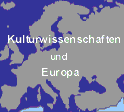
 |
New Initiatives in Cultural Studies on the World Wide Web |
|
Twentieth century society was labelled the "information society" before the "invention" of the Internet in 1968. However, the Internet as a medium for interactive electronic communication has assisted certain changes in society such as the internationalisation of scientific communication.
Cultural studies are increasingly present in the World Wide Web - particularly in the role of supporting or providing the impetus for examination of change in society and the media as part of a process of self-reflection in society, and as a forum in which to present initiatives to resolve problems. Initiatives for new cooperative endeavours in research can also be noted.
Problematic areas, which have become increasingly apparent to cultural studies specialists through the Internet, include multilingualism, but also adequate education and scholarship to deal with greatly altered opportunities to acquire or disseminate information and to present knowledge. Libraries and universities must also accomodate these changing opportunities with regard to how they present themselves, and how they provide access to information and research projects. As a complement to personal contact, virtual universities are bringing about a renewal of cooperative structures and access to education. As well as the Arts as a divisive or unifying element of nations, factors such as work or migration in an increasingly mobile society are becoming important areas of research for cultural studies. These research areas are also key to creating transcultural understanding. The WWW is already the place where numerous organisations concerned with a "culture of peace" are developing networks, a place interested individuals can find too.
In the context of the "Cultural Studies and Europe" exhibition, selected
websites from many countries are presented. These present new cultural
studies initiatives dealing with the problem areas sketched above, and
research results are accessible via the WWW. A glance at the usage of data
on use should illustrate the opportunities to receive the contents presented,
as well as interactive participation in the exhibition network via the
"Cultural Collaboratory."
|
|
|
|
|
|
|
|
|
|
|
|
|
|
|
|
|
|
|